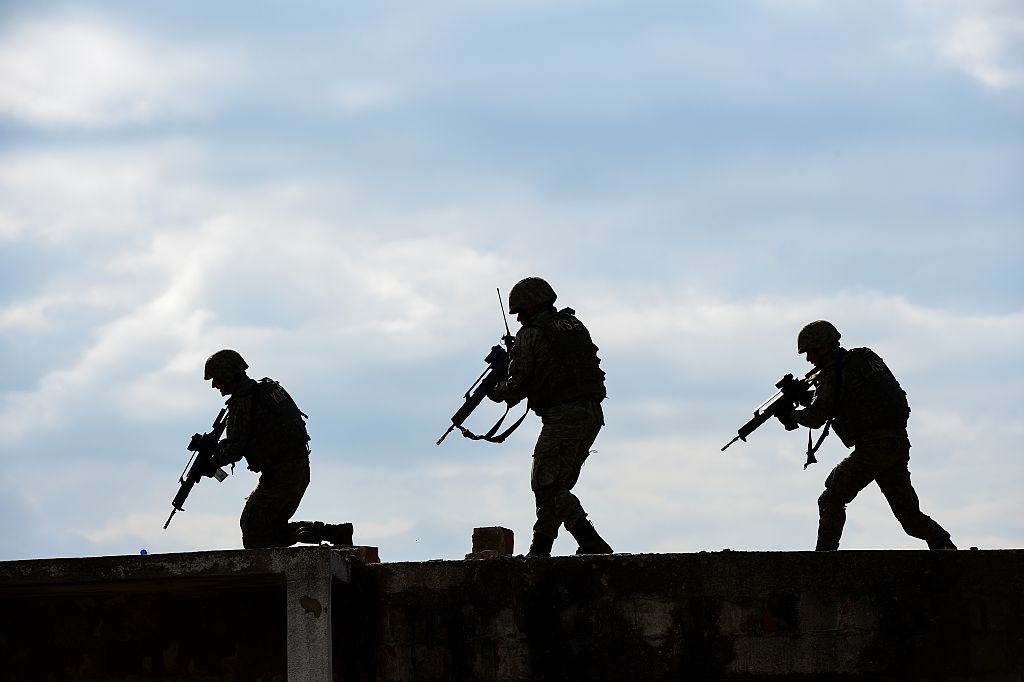This week, General Sir Nick Carter, Chief of the General Staff, made it quite clear how he would like to fight the Russians should they invade Eastern Europe or start a war with NATO:
We should identify Russian weaknesses and then manoeuvre asymmetrically against them. First and foremost, perhaps we should be in the business of building real institutional capacity in neighbouring states so that they have the strength and confidence to stand up to Russia and the internal resilience to withstand pressures designed to bring them down from within.
Carter went on to say that we need to reduce our energy dependency on the East, better protect our critical capabilities (communications and infrastructure) and work on improving NATO interoperability. He’d also like to develop plans for overland reinforcement to Estonia and Poland and, as has been reported widely, keep what little remains of the British troops posted in Germany. With these changes, and some others, Sir Nick thinks we’ll be alright. But it was during the questions after his speech that we learnt more about some of the limitations to his proposals – and the problems facing our armed forces.
On the topic of additional funding he was coy and, in possibly the most tried and tested (to failure) military slogan ever, he committed to making the best of what we’ve got. Nonetheless, it was painfully obvious that Carter was still attempting to highlight the myriad threats endangering the British Army and, in doing so, trying to make a case for more resources to be sent its way. The fact that he didn’t explicitly say this speaks volume about his character. Sadly, it also probably shows his awareness of how little priority the armed forces now has in the minds of the public and politicians alike. The NHS budget, Brexit ‘divorce’ bill and education figures are kicked around like political footballs. Sick patients are in need of beds and medicine, children must be taught to read, and the City and businesses need stability to grow and prosper. But war that might come on the horizon – the kind General Carter spoke about, the kind we won’t even see coming? Well, it’s not difficult to see why defence spending has largely slipped out of the public consciousness.Gavin Williamson, the current Defence Secretary, has been in post for nearly three months. It is his first cabinet role and although he won some breathing space over leaked plans for major cuts there is still an enormous hole in the defence budget. His former role as chief whip will not have endeared him to his Cabinet colleagues and his inexperience with the military can’t help either, regardless of him visibly trying to get to grips quickly with his enormous new brief. But even with an extension to the National Security Capability Review for the Army, it seems like political will for investment is waning. What’s more, Jeremy Corbyn’s views on the armed forces and their deployment (or dissolution) are well known and Labour MPs remain largely silent on the issue of defence spending.
What about public sentiment? This is hard to gauge. General Carter bluffly insisted that he didn’t think politicians and the British people had lost the stomach for a fight. But on what basis is he making this case? In the internet age, values and fighting for what you believe arguably play second fiddle to tweeting, texting and virtue signalling vain platitudes like: ‘Why can’t everyone just be nice to each other?’. Military recruitment has stalled. Efficiency savings have obliterated the benefits many service personnel relied on to make a long career palatable. There is no public agreement on what the army is for, let alone the appetite to deploy it.
General Carter’s speech was framed in such a way as to encourage or provoke debate. Towards the end, he asked whether the man or woman on the street was even really interested. If they are interested, they should be worried. And if they’re not, then it is time for Carter to worry. Unless Conservative politicians can work together to resolve the funding crisis in the military, there could be serious repercussions in the not-so-distant future – a prospect that could be even worse for the nation than the dire thought of a Corbyn-led government.






Comments